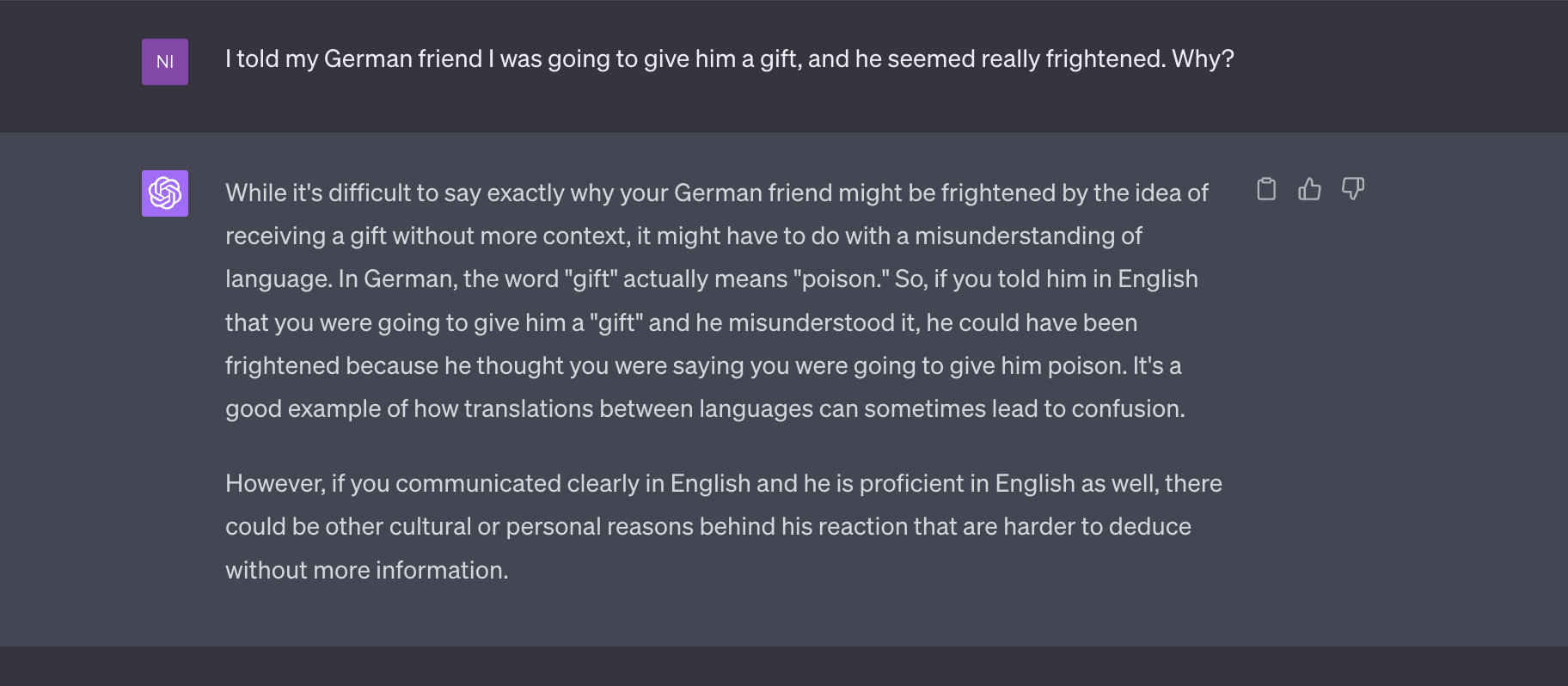In Chinese, the words for "to let someone do something" and "to make someone do something" are the same, 让 (ràng). My partner often makes this confusion. This one it did not get even after several promptings, up until I asked about the specific word.
Then I asked why both a Swede and a Dane I know say "increased with 20%" instead of "increased by 20%." It guessed that it had something to do with prepositions, but did not volunteer the preposition in question. (Google Translate answered this; "increased by 20%" translates to "ökade med 20%," and "med" commonly translates to "with.")
But then I made up a story based on my favorite cognate*, and it nailed it.
So, 2/4.
* Yes, this is a true cognate. The German word "Gift" meaning "poison" allegedly descends from euphemistic uses of the English meaning of "gift"

Not from any research paper, just from a quick test I did with it, but it still impressed me:
When I caught this mistake on Facebook, I thought it was quite clever, and I wanted to see whether GPT-4 could pick up on it. I'm very impressed that it was able to make the connection from the user's name being Italian to the existence of a word in Italian that had a double meaning that doesn't exist in English.
Note: I did have to give it a hint about the user's name. Without the hint, it gave a few weak explanations.